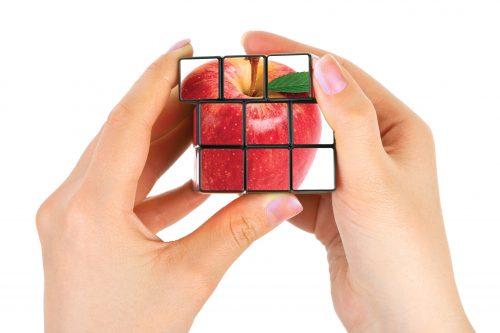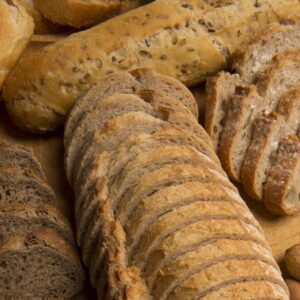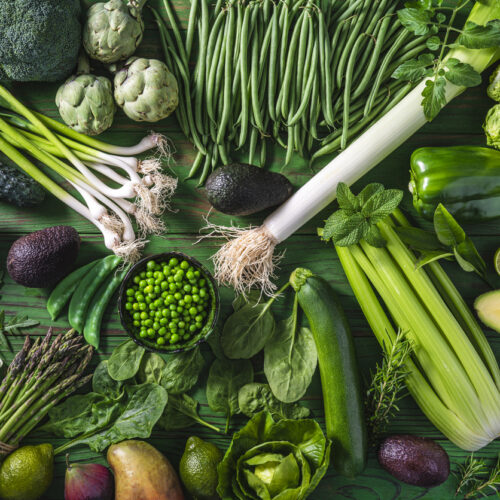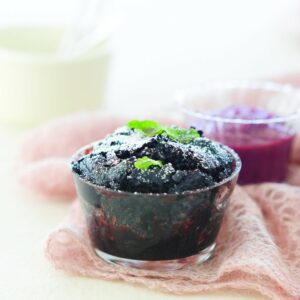
Do you envy those people with steel-trap memories who are as sharp as a tack despite their age? You can be that way, too, if you know what nutrients to feed your brain, says nutritionist Tracy Morris.
Boost your memory
Most of us accept memory loss as an inevitable part of ageing. But in fact, for many of us, a large part of memory loss is caused by the brain having inadequate access to certain vitamins and minerals.
To store, access and transmit memories, the brain uses chemical messengers called neurotransmitters. To make these neurotransmitters, the brain uses certain nutrients derived from food. If you are not eating the right foods, your brain can’t make the neurotransmitters required to store or access those memories – resulting in memory loss. What this means is that most of us may actually be able to improve our memory, with a few additions to our diet.
Iron
There has been plenty of research to suggest that iron may be vital to an effective memory. A 2007 study published in the American Journal of Clinical Nutrition found that women with sufficient iron levels could answer questions significantly faster, and answer correctly, than those who were iron deficient. The study also found that when the iron-deficient women were given 16 weeks of iron supplementation, their scores/mental performance increased seven-fold.
Iron is also crucial when it comes to producing the brain chemicals dopamine and noradrenalin, as well as carrying oxygen to brain tissue. Low levels of these chemicals can negatively affect concentration and memory.
- Add iron-rich foods such as red meat, pumpkin seeds and iron-fortified foods to your diet.
Choline
Choline is an essential nutrient used to make neurotransmitters and, like iron, research shows it has a marked effect on memory.
In one study, healthy older adults (aged 50 to 80 years) who ate two tablespoons of cholinerich lecithin each day showed a marked improvement in memory. After just five weeks, memory lapses – like forgetting names and misplacing items – decreased by 48 per cent.
- Up your intake with choline-rich foods such as eggs, nuts, seeds and soy beans.
Folate
Found mainly in vegetables and fruit, folate has been identified as a major nutrient in warding off memory loss. A study published in the Journal of Biology and Psychiatry found that healthy older adults who scored poorly on recall tests were more likely to have low levels of folate in their blood. Not surprisingly, forgetfulness is a symptom of folate deficiency.
- Add broccoli, bran cereals, asparagus and strawberries to your diet for a folate boost.
Water
Your body uses fluid to transport nutrients to the brain. So even if you are eating the right nutrients, without enough water, they may not be reaching your brain. Studies show dehydration affects not just your memory, but your overall cognitive abilities.
- Make sure water is your drink of choice and eat plenty of water-rich foods such as vegetables and fruit (tomatoes and grapefruits fit the bill).
Glucose
The brain needs large amounts of glucose to function – 20 per cent of the body’s entire ‘energy budget’, in fact. Glucose is derived from carbohydrates, which is why eating a sufficient amount of carbohydrates has been linked to an improved ability to concentrate, remember and learn.
Unlike muscles, however, the brain cannot store glucose, which means it needs a constant supply for optimal functioning. Therefore, how often you eat can make a difference to the effectiveness of your memory.
- Regular meals, snacks with a combination of protein and low-GI carbohydrates help keep your brain’s glucose supply at a steady rate. It is important to eat a healthy breakfast as memory-friendly nutrients are depleted overnight.
Antioxidants
We get antioxidants from the foods we eat but our bodies have an ability to produce their own antioxidants, too. The brain, however, has a limited capacity to produce its own antioxidants so it relies much more heavily on the antioxidant-rich foods you eat to fight off free-radical damage.
- If you are not eating enough antioxidant-rich vegetables and fruit, your brain is especially vulnerable. Several studies have confirmed this link
Avoid dementia
Omega-3s
Several studies – including a recent, large population study – have shown a link between eating more fish (and therefore, long-chain omega-3s) and a reduced risk of dementia.
- While the research findings are somewhat controversial, omega-3s have a proven link to brain health, so make sure you are getting enough.
Mediterranean diet
A recent US-based study showed that following a Mediterranean-style diet was associated with a 38 per cent reduction in the risk of developing Alzheimer’s disease.
- Following a Mediterranean diet consists of higher intakes of nuts, fish, tomatoes, poultry, cruciferous vegetables (such as cauliflower and Brussels sprouts), fruits and dark green leafy vegetables, as well as a lower intake of high-fat dairy products, red meat, organ meat and butter.
B vitamins
Homocysteine is an amino acid found naturally in the blood. Having too much, however, can increase the risk of Alzheimer’s disease and other dementia (not to mention heart disease and stroke). Folic acid and vitamins B6 and B12 help break down homocysteine and getting plenty of these in your diet can help reduce high levels of homocysteine and delay dementia.
- Legumes, milk and bran cereals are good sources of B vitamins.
Antioxidants
It is thought that free radicals may contribute to brain cell death, leading to Alzheimer’s disease or other dementia. Studies have shown vitamins C and E, and beta carotene from food, could be protective.
- Although these findings are not yet conclusive, it doesn’t hurt to up your intake of fresh vegetables and fruit.
Help your kids perform better
As with adults, food can make a difference to a child’s memory, concentration levels and overall mental health. In fact, most brain growth is completed by five to six years of age, so make the most of those early years by feeding your kids all the nutrients listed in this article. Studies have also shown:
- Omega-3 is important – it’s been linked to higher intelligence in childhood.
- Iron is important in the classroom – low levels of this nutrient affect childrens’ ability to learn.
- Zinc is linked to ADHD (attention deficit hyperactivity disorder). Many children with ADHD have lower zinc levels compared to healthy children.
- A low-GI breakfast may help to maintain kids’ attention and memory throughout the morning.
Can you improve your baby’s IQ?
Research does suggest that what you eat during pregnancy and breastfeeding can impact a baby’s brain development. Here are some key findings:
- Iodine is crucial for normal brain development before birth, with iodine deficiency being by far the most common, preventable cause of developing a low IQ. The Ministry of Health recommends pregnant and breastfeeding women take a registered 150 micrograms (mcg) iodine-only tablet.
- Zinc There is evidence that not getting enough zinc during pregnancy and while breastfeeding can result in less focused attention and impaired motor development in the baby.
- Omega-3 (or more specifically, the longchain omega-3, DHA), is vital for normal brain development in children. Breastmilk is a very rich source of DHA.
- Folate is key to the growth of a healthy neural tube (which later develops into the baby’s spinal cord and brain). The Ministry of Health recommends an 800mcg folic acid tablet daily for at least four weeks before and 12 weeks after conception to reduce the risk of neural tube defects. A 5000mcg (5mg) tablet is recommended for women at high risk.
- Choline may help improve the function of a baby’s lifelong memory. If you are pregnant or breastfeeding, eat choline-rich foods such as eggs, dairy, peanuts and soybeans.
If you are considering becoming pregnant, currently pregnant or breastfeeding, consult with your health professional before taking supplements.
Brain boosters
What they do and where to find them.
| Nutrient | Function in the brain | Best source |
|---|---|---|
| Iodine | Crucial for normal brain development before birth | Seafood, seaweed, iodine-fortified bread, iodised salt |
| Zinc | Involved in shaping the developing nervous system and maintaining its structure | Lean meat, poultry, seafood, eggs, dairy, legumes, whole grains |
| Iron | Produces brain chemicals (dopamine and noradrenalin), carries oxygen to the brain, necessary for memory function | Red meat, pumpkin seeds, iron-fortified cereals |
| Water | Transports essential nutrients to the brain | Water, coffee, tea, trim milk, vegetables and fruit |
| Glucose | Primary source of fuel for the brain | Whole grains, oats, legumes and fruit; eating regular meals and snacks keeps levels high |
| Omega-3 | A building block for brain tissue and neurotransmitters | Salmon, tuna, sardines, mackerel, walnuts, flaxseed |
| Tyrosine and tryptophan | Sustains mood and helps with stress; precursor to serotonin, for alertness, concentration and mood | Lean meats, fish, dairy, legumes, nuts, seeds |
| Choline | Essential for forming neurotransmitters and memories | Eggs, dairy, peanuts, soybeans |
| Antioxidants | Required to mop up damaging free radicals and slows cognitive decline | Vegetables and fruit, nuts, seeds, whole grains |
| B vitamins (folate, B6 and B12) | Wards off memory loss and helps break down homocysteine, which can increase dementia risk | Meat, legumes, eggs, bran cereals, broccoli, milk, strawberries |
Brain drainers
These foods can have a negative impact on your brain health, so don’t overdo them.
- Alcohol: Drinking even in small amounts decreases our ability to think clearly and drinking in excess causes brain damage.
- Saturated and trans fats: ‘Bad’ fats appear to accelerate mental decline and increase the risk of dementia.
- Fish that contain high levels of mercury: Mercury, transmitted from a mother to her foetus, may affect the baby’s brain development. Some fish that contain high levels of mercury include shark, orange roughy, swordfish and ling.
- Sugary drinks and snacks: According to research published in 2003, kids breakfasting on sugary drinks and snacks performed at the level of an average 70-year-old in tests of memory and attention.
- Fad diets: A study on rats showed feeding them a high-protein, low-carbohydrate diet made their brains shrink, possibly putting them at risk of Alzheimer’s disease.
The bottom line on brains
What you eat really can make a big difference to your brain. Eat the right foods to keep the brain well oiled with healthy fats, well protected with antioxidants and well stocked with the nutrients it needs, and you will be on the road to being the sharpest tool in the shed.
Of course, as much as food can help or hinder efforts to stay brainy, don’t forget that other, non-food-related factors – such as how much sleep and exercise you get, how well you cope with stress and the strength and support of your relationships with friends and family – can have just as great an effect (or even greater) than your diet. If you are concerned about your mental health, the health of your brain or if you have questions related to Alzheimer’s, it’s important that you consult a qualified health professional.
Did you know? Choline is vital to an unborn baby’s brain development – so being pregnant, and breastfeeding, can cause a mother’s choline levels to become depleted. Scientists theorise that this is a possible explanation for the ‘baby brain’ effect.
Can curry keep you clever? The high consumption of curcumin, an Indian curry spice derived from turmeric and a potent antioxidant, is thought to contribute to the low prevalence of Alzheimer’s disease in India.
www.healthyfood.com










